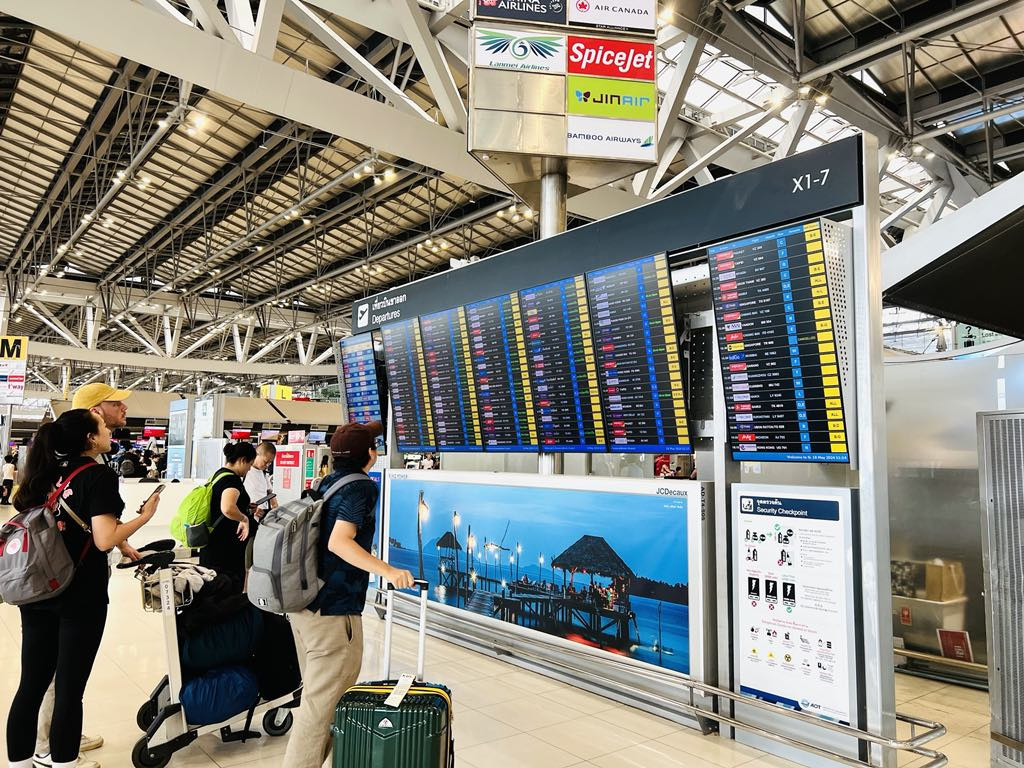The Ministry of Finance has proposed a regulation to temporarily restrict individuals and businesses with overdue tax debts from leaving the country, with thresholds set at VND 10 million for individuals and VND 100 million for businesses. While the thresholds are deemed suitable for Vietnam’s context, they are significantly lower than those of many other nations, raising questions about fairness, implementation, and oversight.

The draft decree, effective January 1, 2025, outlines that:
Individuals or household business owners with overdue tax debts of at least VND 10 million ($400) for more than 120 days will face a travel ban.
Businesses, cooperatives, or unions owing at least VND 100 million ($4,000) under similar conditions will see their legal representatives barred from leaving the country.
The policy aims to enhance tax compliance while balancing the need to avoid undue inconvenience for taxpayers.
Bui Quang Cuong, Director of iViet Business Solutions, supports the thresholds, emphasizing that they strike a balance by applying restrictions to substantial tax debts while avoiding overburdening small debtors.
He noted, "The 120-day period is reasonable, providing sufficient time for taxpayers to arrange finances and fulfill obligations, while also enabling tax authorities to manage debt effectively."
However, legal expert Pham Thanh Long pointed out that the thresholds are considerably lower than in countries like the United States, where travel restrictions apply only for tax debts exceeding $55,000 (approximately VND 1.3 billion). He warned that Vietnam’s proposed levels could lead to a high number of travel bans, potentially overwhelming administrative systems.
Implementation concerns
Lawyer Truong Thanh Duc from ANVI Law Company highlighted the importance of aligning these thresholds with other legal provisions. He suggested using benchmarks like personal income tax thresholds or minimum wages to determine debt levels, thereby minimizing the need for frequent adjustments due to inflation or economic changes.
He added, “Setting thresholds too low or imposing tight deadlines could disrupt business activities and economic growth.”
Experts stress the need for clear oversight to prevent misuse of administrative powers. Lawyer Pham Thanh Long noted past cases where travelers discovered their travel bans only at the airport, resulting in financial and logistical waste. “Checking for tax debts has become a routine step before traveling for many,” he said.
Improving communication is crucial to ensuring taxpayers are aware of their debts and potential restrictions. Cuong recommended using multiple channels for notifications, including: Taxpayer accounts (eTax Mobile and thuế điện tử platforms) Digital IDs (VNeID), Emails, SMS, and messaging apps like Zalo.
“Not everyone knows how to check their tax status online,” Cuong said, advocating for diverse notification methods to enhance accessibility and compliance.
Enhanced coordination between tax authorities, airlines, and immigration departments is essential. Cuong suggested: Frequent updates of travel restriction lists by tax authorities; Real-time integration of data, enabling immediate clearance once debts are settled; Airlines and immigration officers notifying passengers of potential travel bans in advance, allowing time to address debts before departure.
“With modern technology, this process can be streamlined to minimize disruptions for taxpayers and maximize efficiency for authorities,” Cuong emphasized.
While countries like Canada and the US reserve travel bans as a last resort after other measures - such as asset seizures and bank account freezes - Vietnam’s thresholds are comparatively lower. The policy’s success will depend on ensuring it does not become a disproportionate measure that burdens taxpayers and stifles economic activity.
Binh Minh